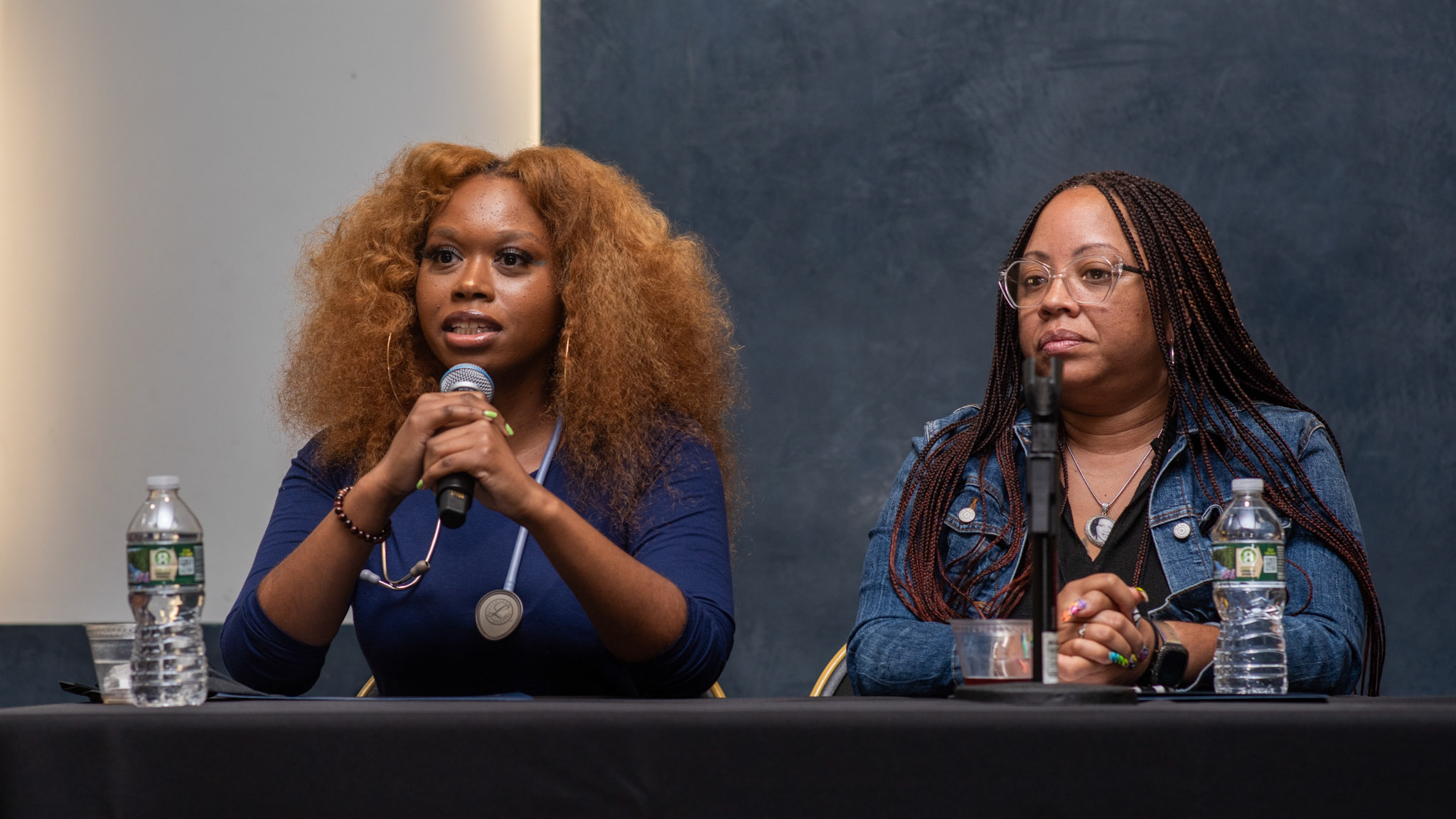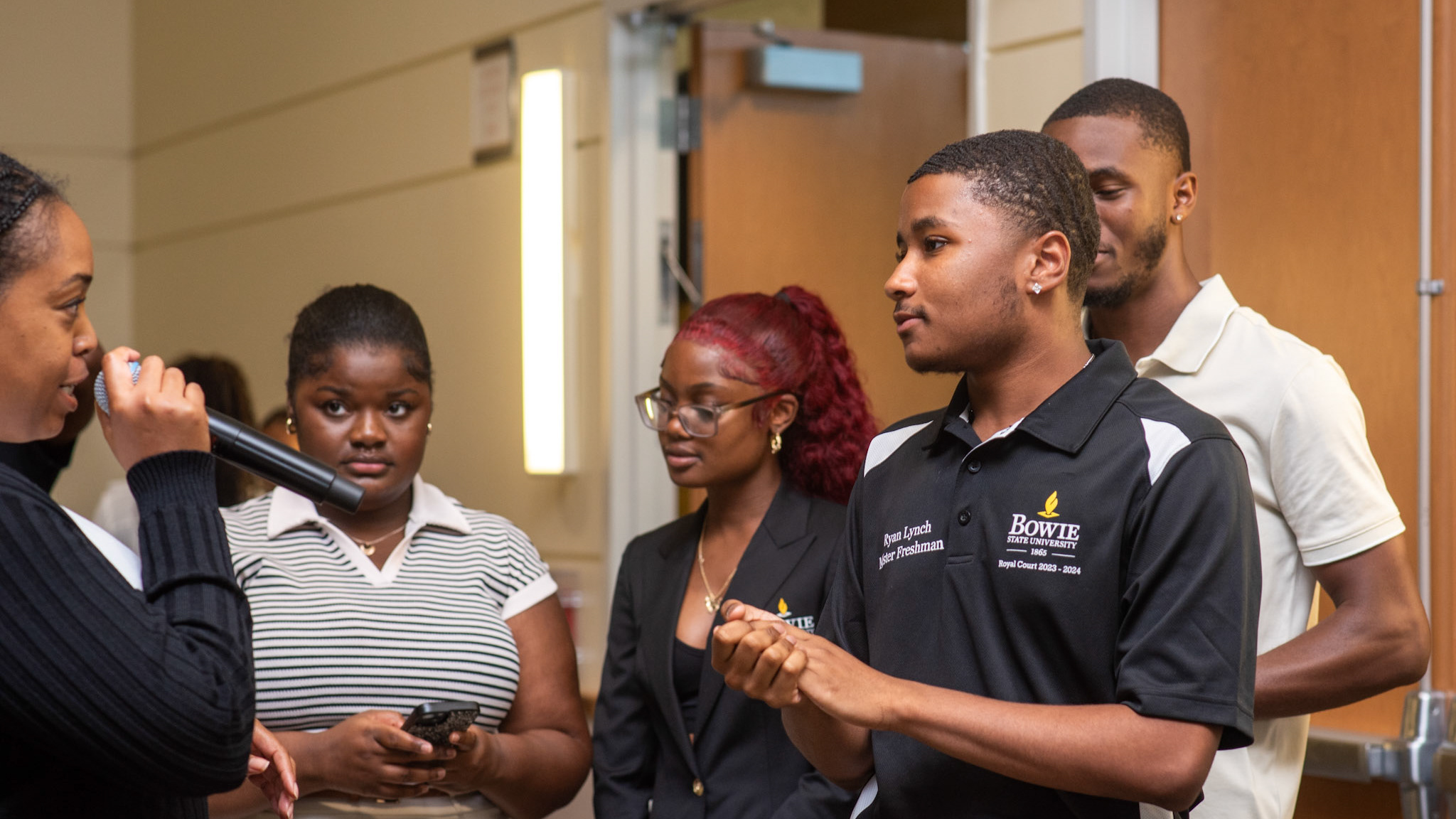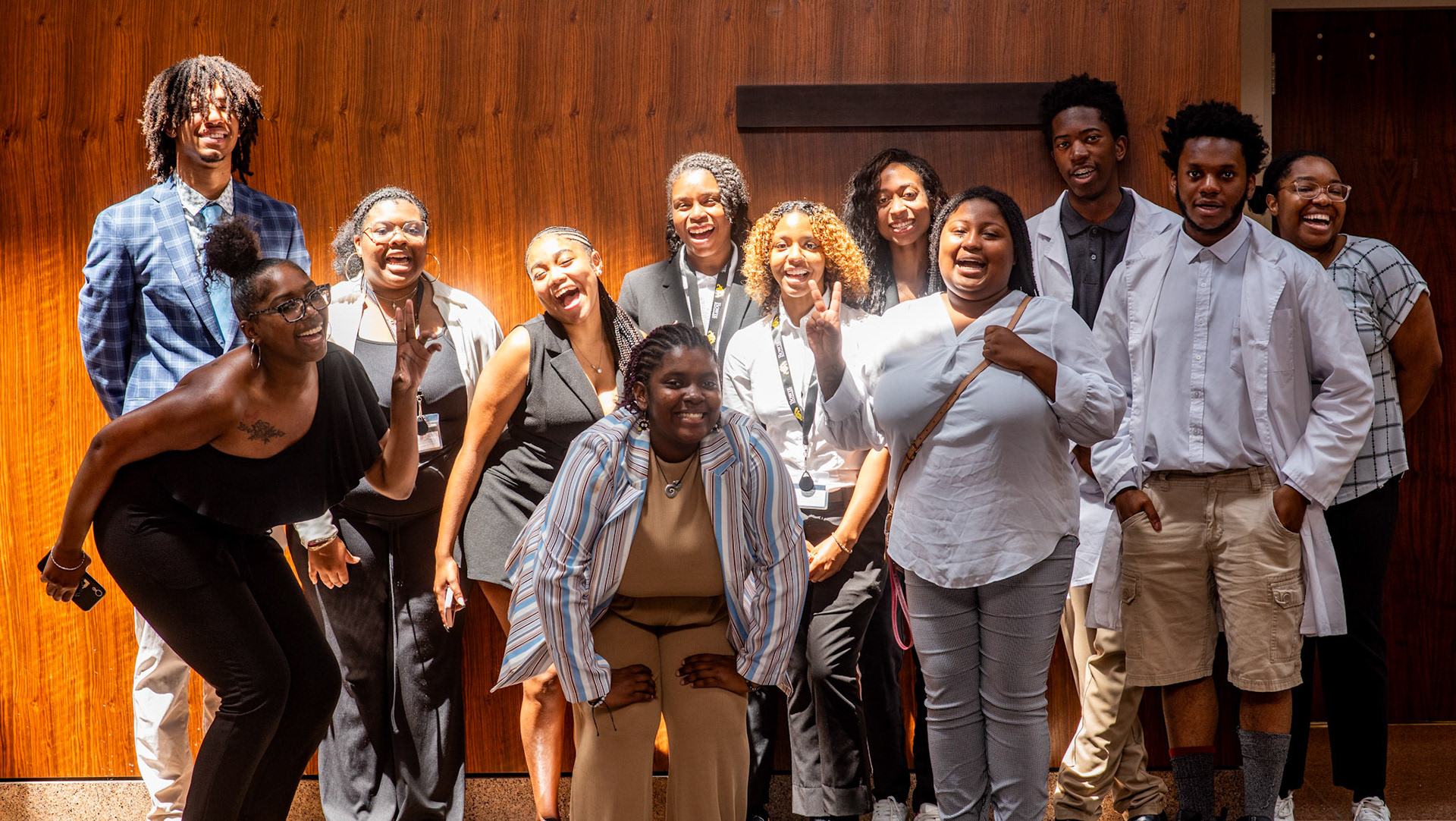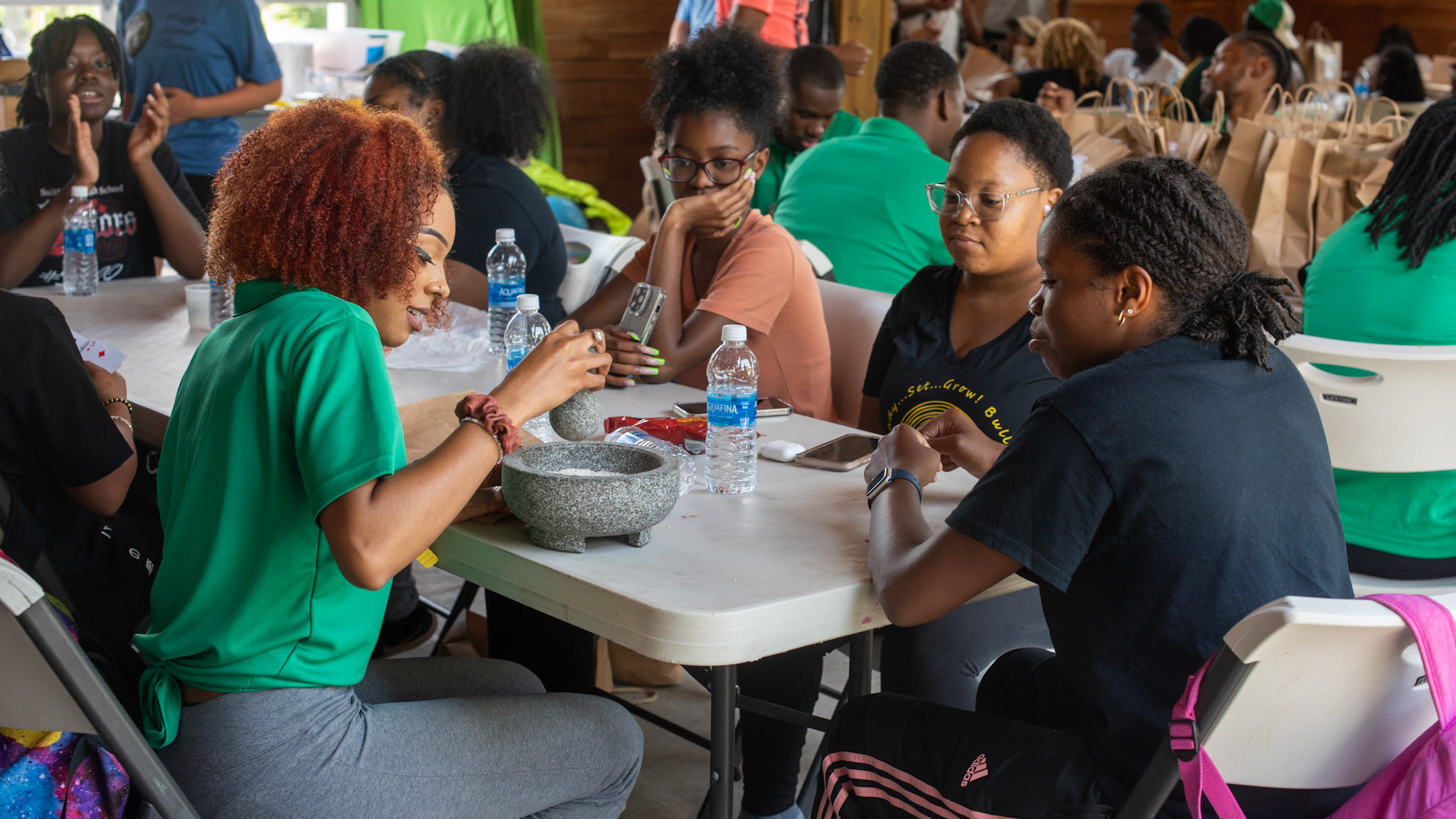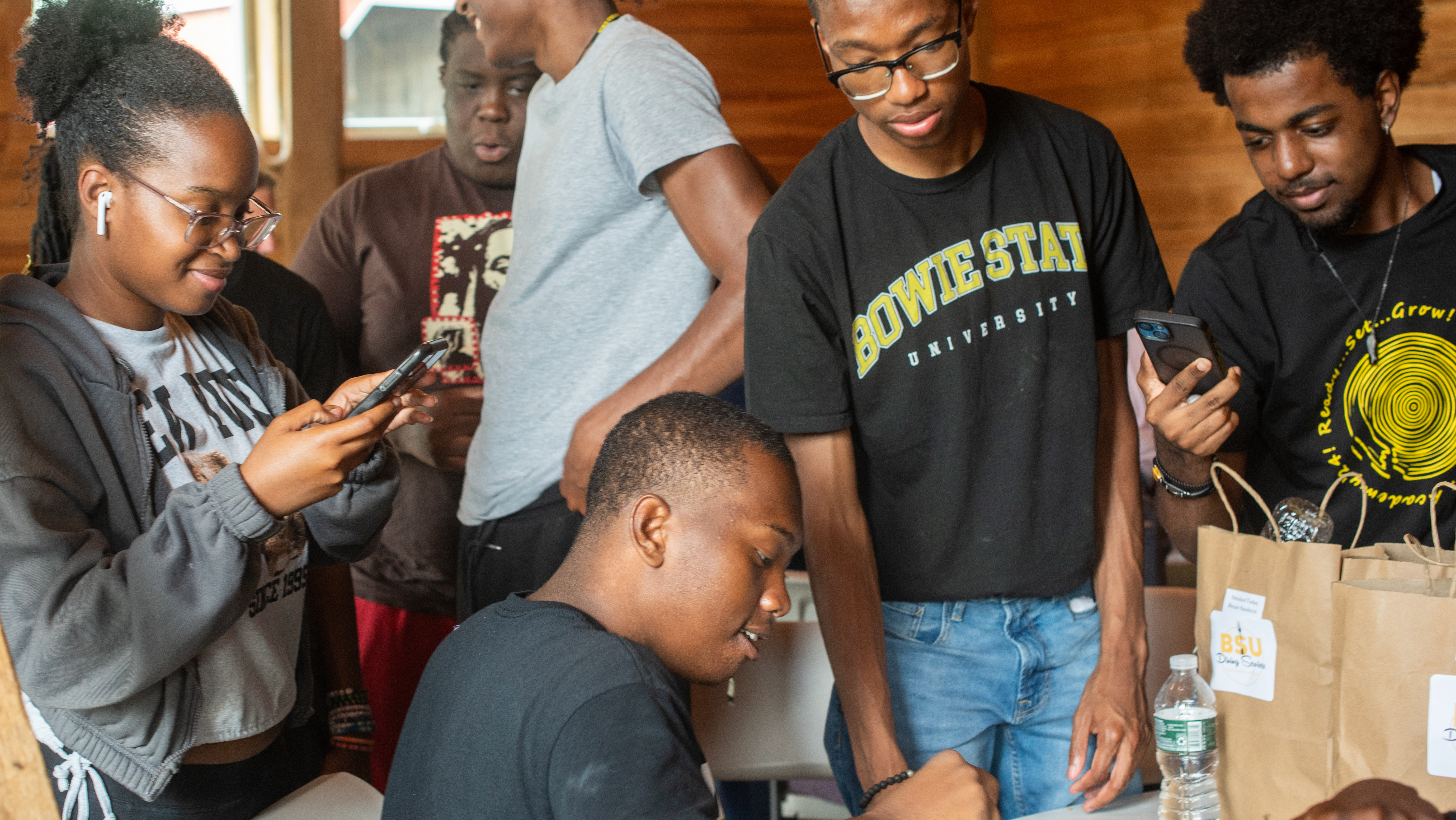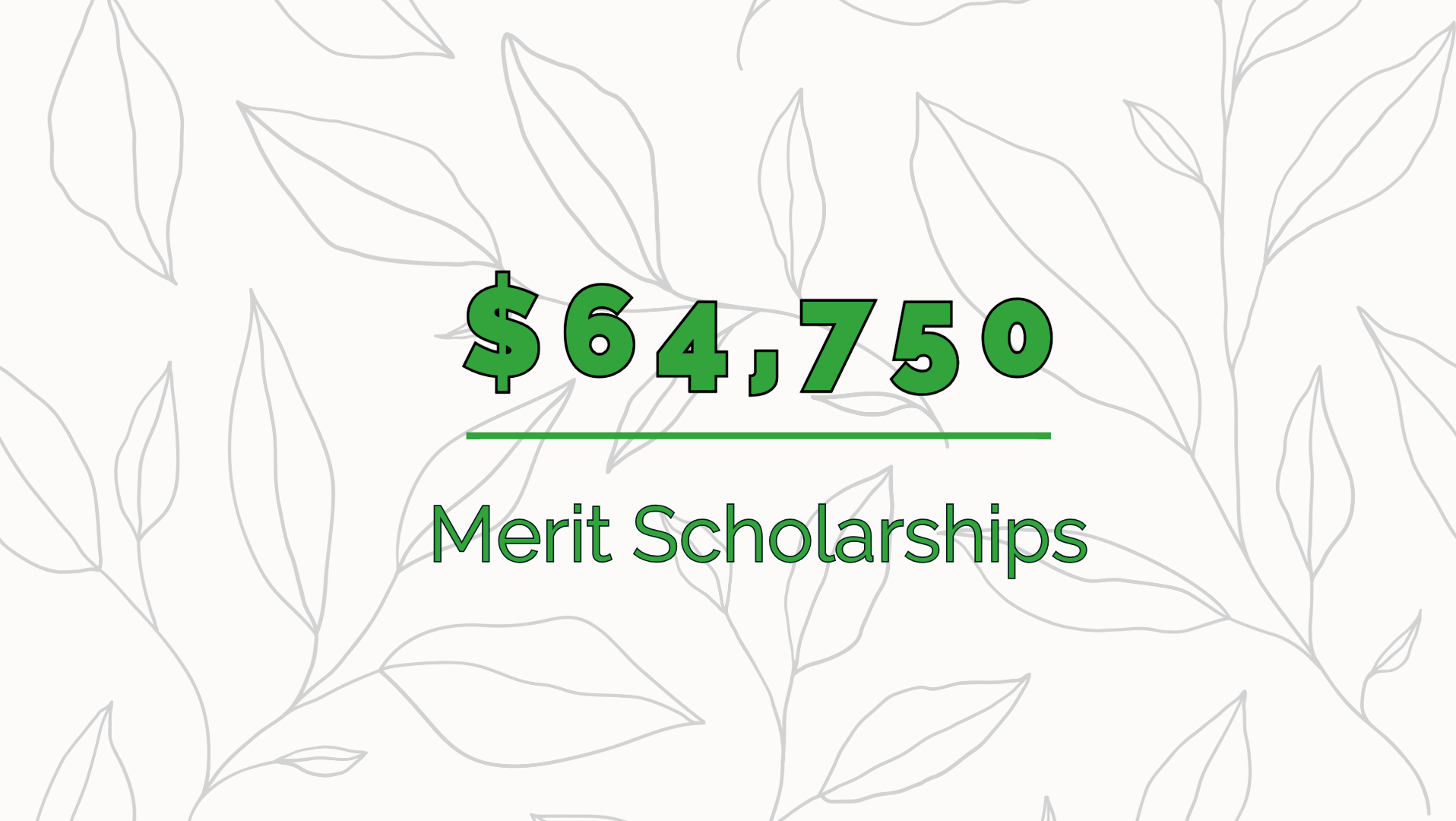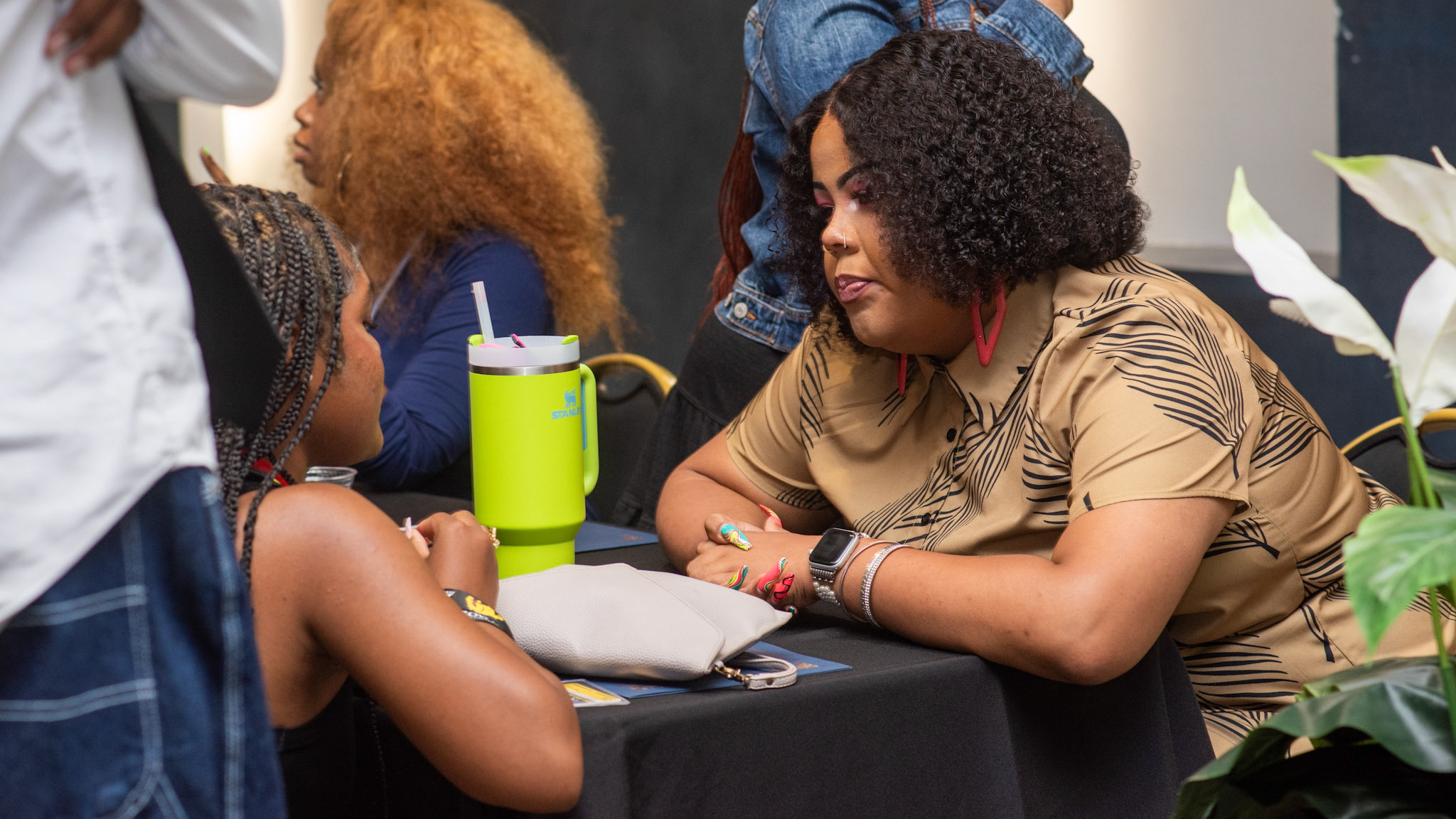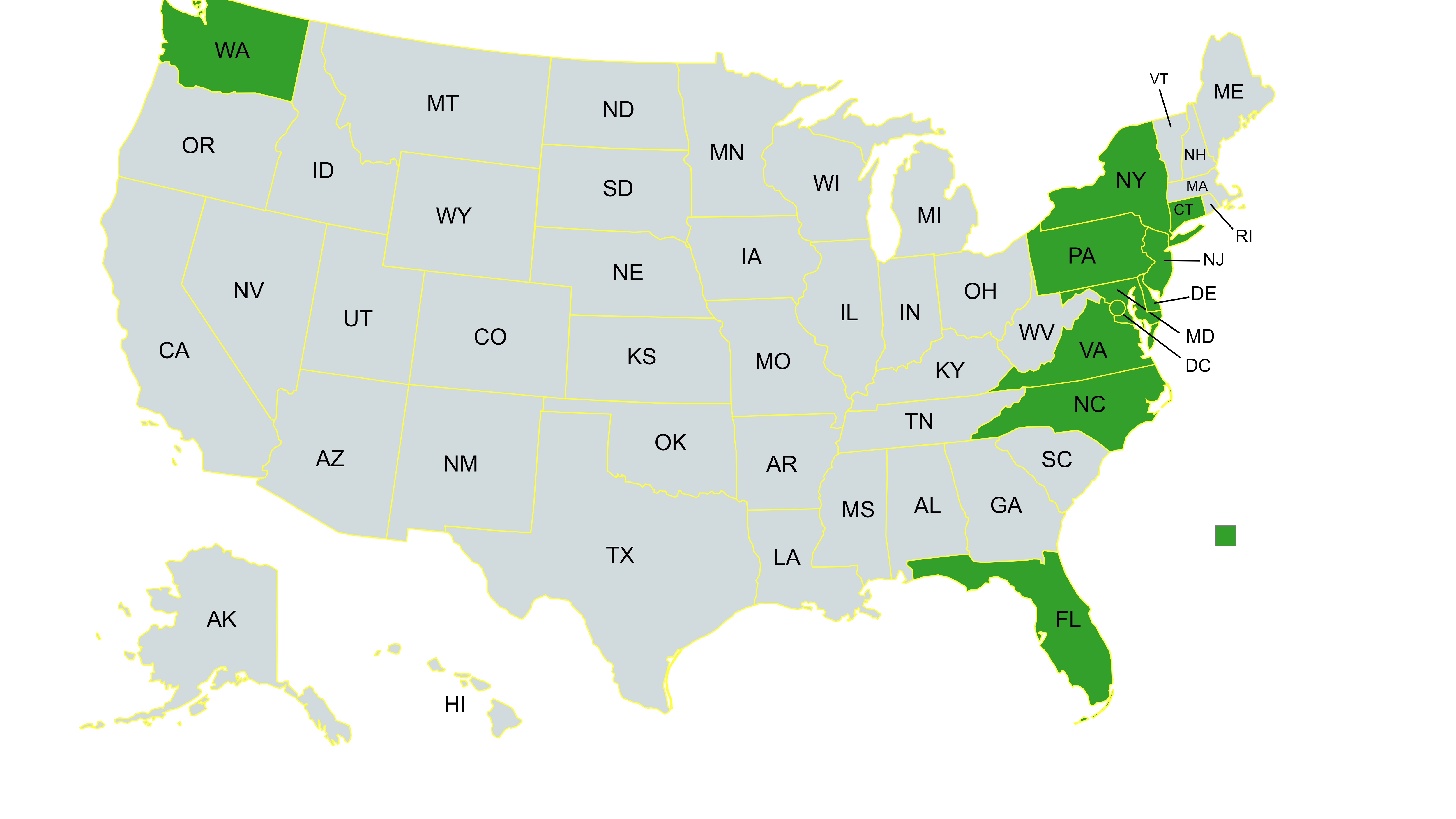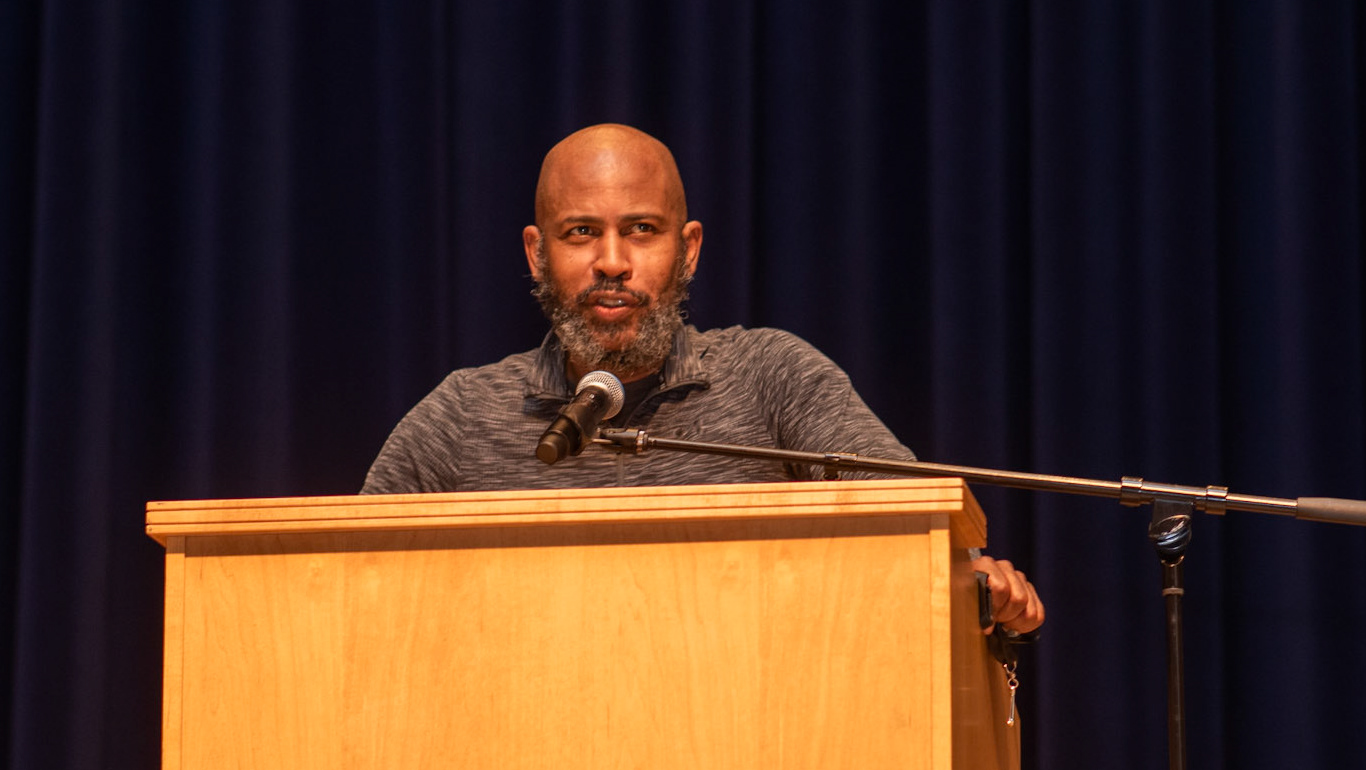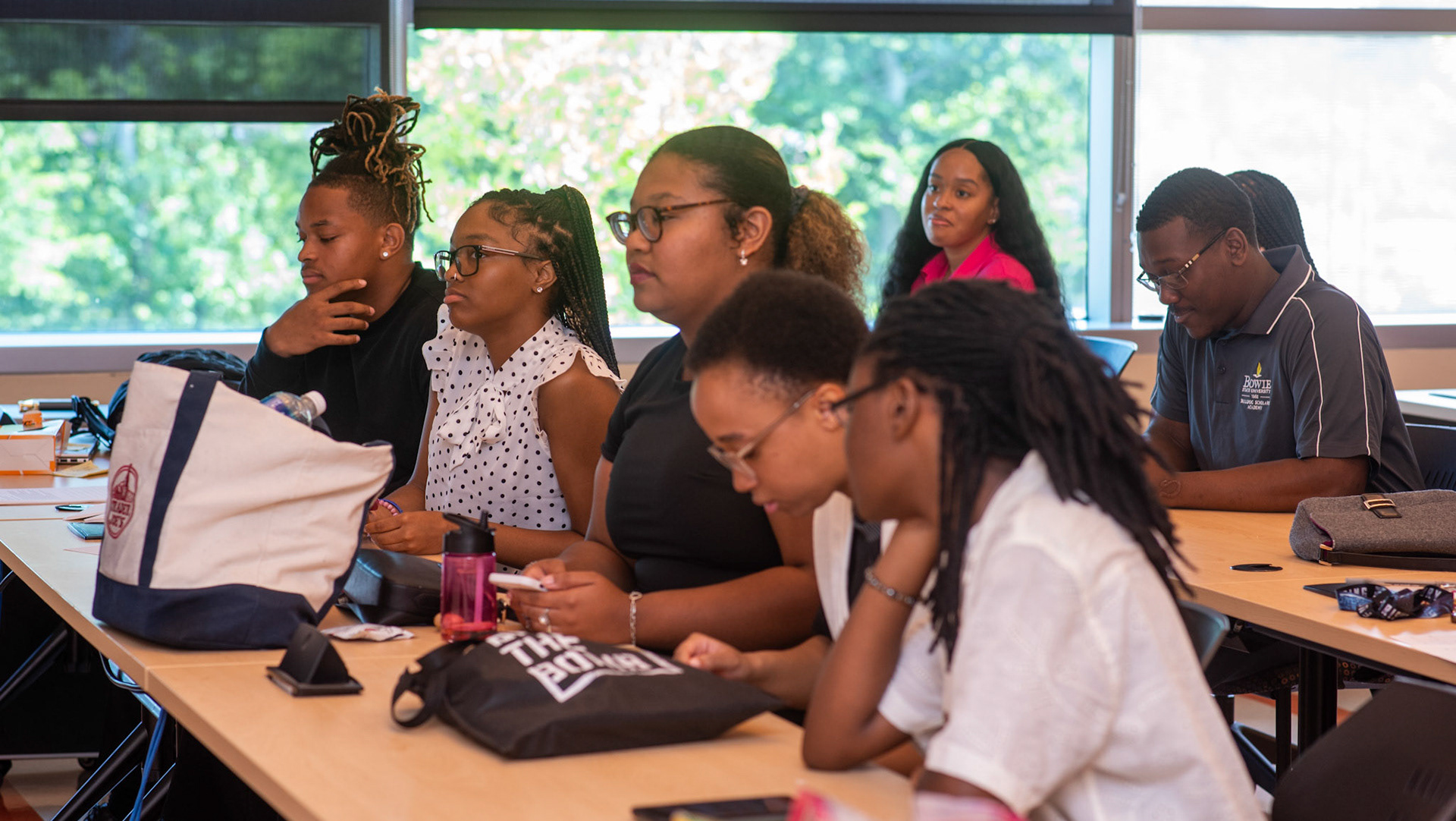Seventy-six scholars completed the Academy. Grade breakdowns for each learning community and a brief description of their final project are listed below:
A Natural Science Academy scholar presents research at BSA's Final Presentation, held on August 1, 2024
Natural Sciences Academy (NSA) & MATH
Scholars conducted cancer prevention research in teams, using a multi-disciplinary approach.
Grades (100% success rate)
MATH 141, N=5
A=5
MATH 90, N=7
A=5, B=0, C=2
Natural Sciences Academy=Not graded
MATH & ENGL
Scholars wrote and presented essays inspired by Professor Hoke Glover's book Crazy as Hell.
Grades (100% success rate)
MATH 141, N=8
A=7, B=1
Math 90, N=7
A=3, B=2, C=1
ENGL 101=N=15
A=7, B=7, C=1
A scholar reads her African American History-themed essay in the FPAC Recital Hall.
Scholars show off a prototype for a logo used on their website, which educates users about breast cancer in men. They built their website using Python Programming Language.
HEED & CTEC
Scholars developed websites on health-related topics.
Grades (100% success rate)
HEED 102, N=10
A=5, B=4, C=1
CTEC 114, N=10
A=9, B=1
PHIL & COMM
Scholars wrote and read an epistle about their transition into college. They used concepts from philosophy to reflect upon their experiences.
Grades
(93% success rate in PHIL &
100% success rate in COMM)
PHIL 101, N=14
A=10, B=1, C=2, D=1
COMM 101, N=14
A=12, B=2
Scholars visit the American Poetry Museum in Washington, D.C. with Dr. Fred Mills to meet Rafael Rodriguez, an El Salvadoran immigrant whose artwork tells the story of undocumented immigrants in the United States.
A scholar incorporates visuals into her lesson.
SOCI & EDUC
Scholars used sociology-related topics to develop lesson plans and teach a mock class.
Grades (100% success rate)
SOCI 101, N=11
A=8, B=3
EDUC 101, N=11
A=7, B=2, C=2
PSYC & MGMT
Scholars developed business plans to revitalize Rite Aid. They used theories from psychology to inform personnel management and communications strategies.
Grades
(93% success rate in PSYC &
100% success rate in MGMT)
PSYC 101, N=14
A=8, B=1, C=4, D=1
MGMT 101, N=14
A=6, B=8
PSYC & MGMT scholars pose beside their poster.
This year’s strong performance is attributed to:
Community: Years’ worth of data from surveys, focus groups, and observations suggest that students find it challenging to focus on academics before they have formed relationships. It makes sense that they would be hesitant to immerse fully in the academic space before they feel safe and supported. Learning can be a vulnerable and risky process, after all. Bulldog Scholars Academy leverages students’ need for community by cultivating a sense of belonging and offering communal learning spaces. The mentoring and community-building process is described in more detail in sections that follow.
Supportive faculty: BSA selects faculty who tune into the affective aspects of learning and walk with students to help them achieve their goals.
Academic support: Students attend Supplemental Instruction sessions twice a week that reinforce challenging course material and support teamwork.
Contextualized, engaged learning opportunities: the faculty and Supplemental Instructors (SIs) developed experiences to help students make connections to their lives, current events, and interest areas. This integrated approach to learning helps students understand the relevance of the general education curriculum.
